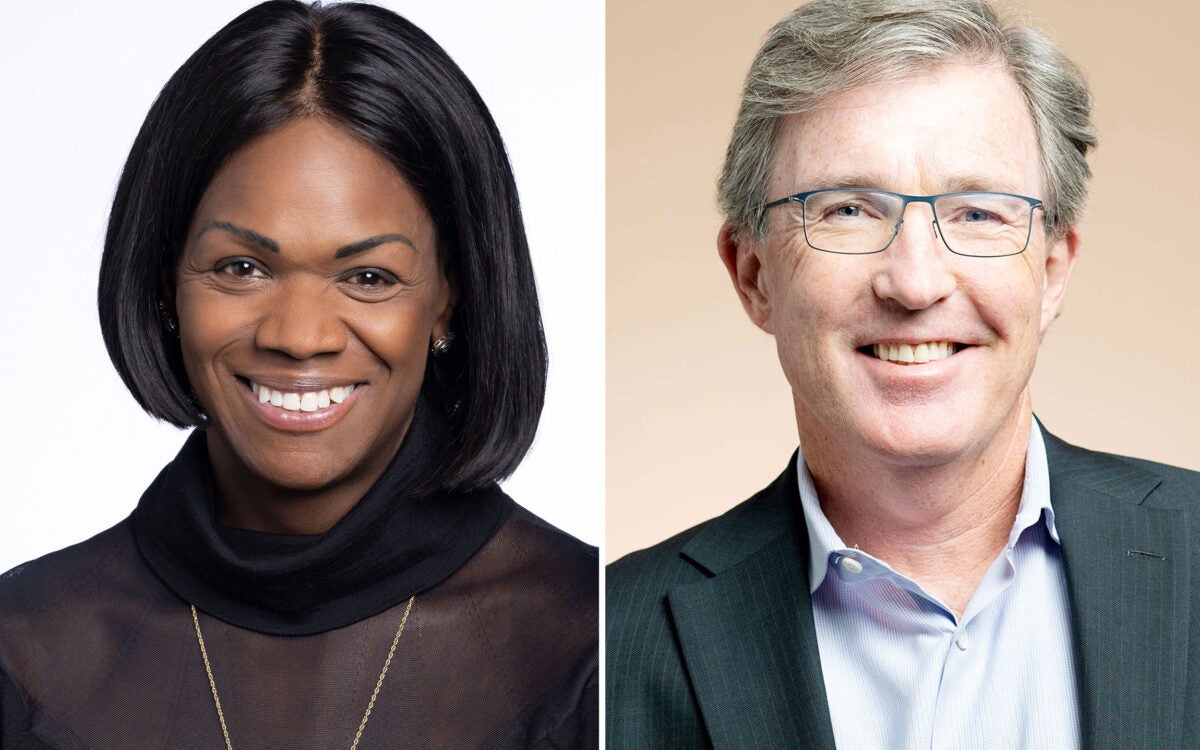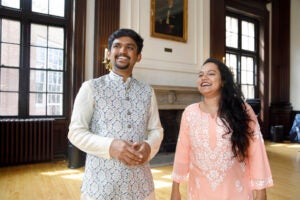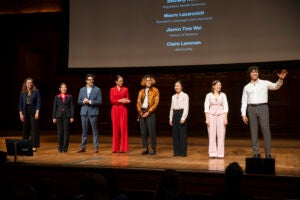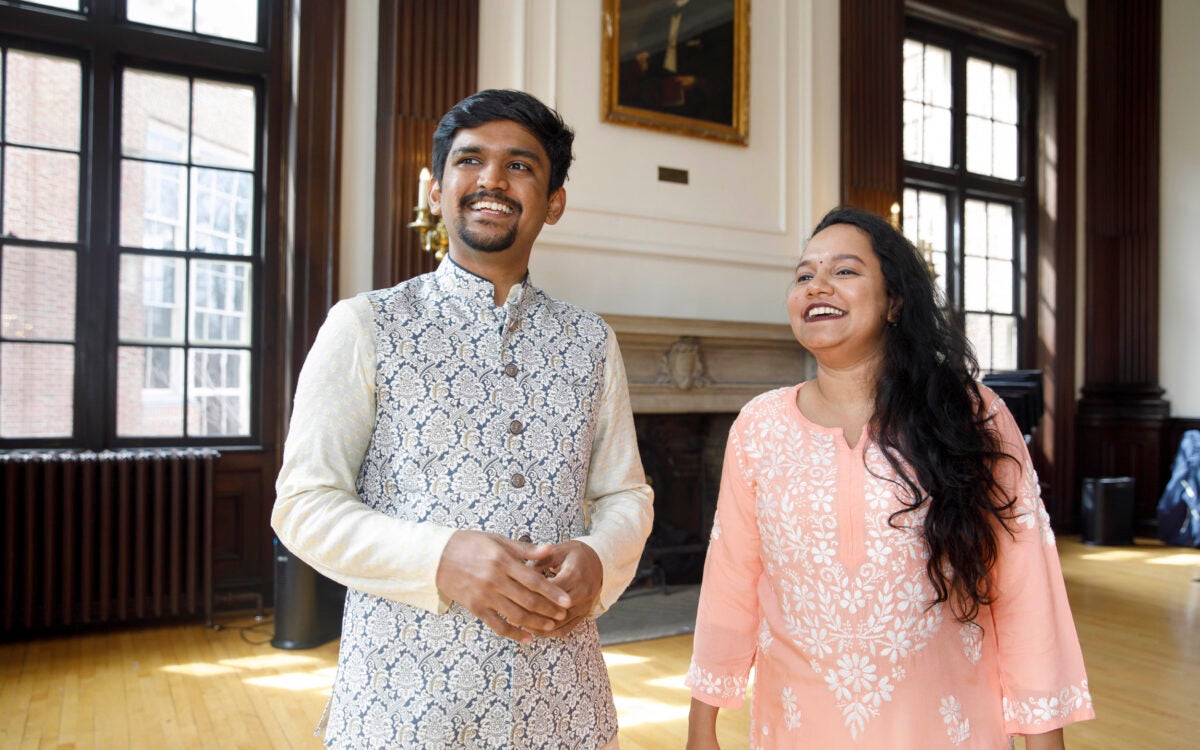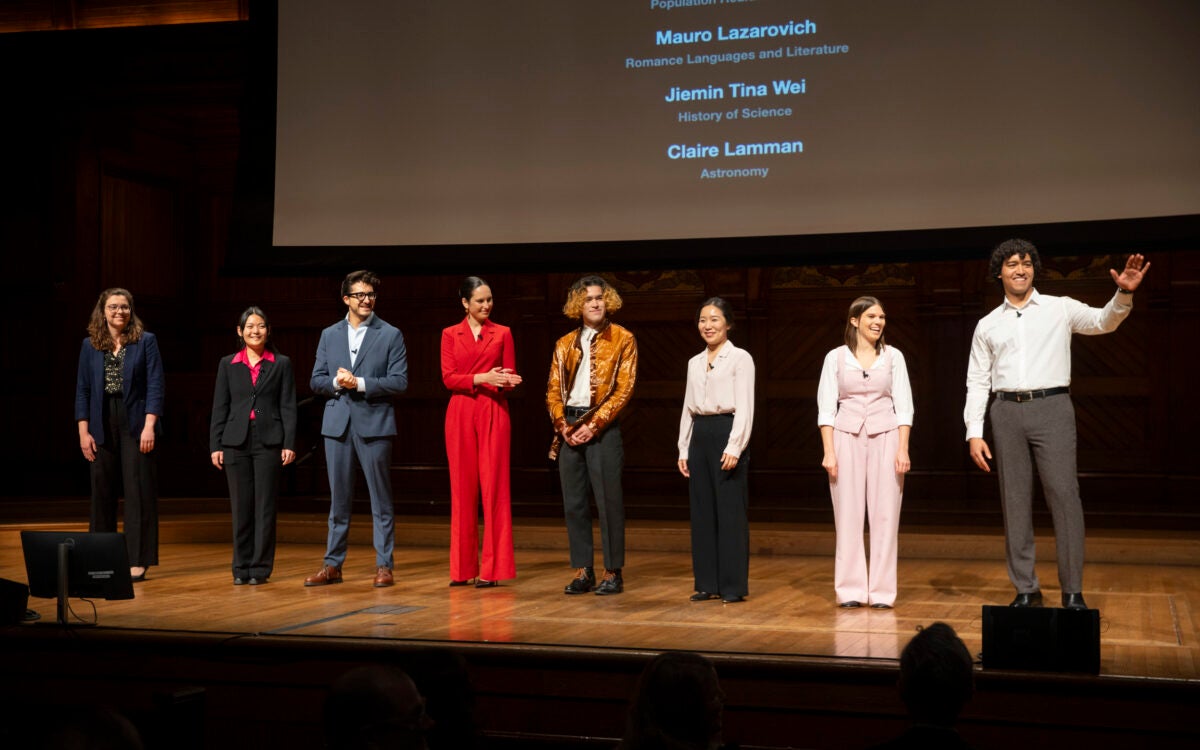Sherri Ann Charleston named chief diversity and inclusion officer
Diversity and higher ed expert joins Harvard from UW-Madison
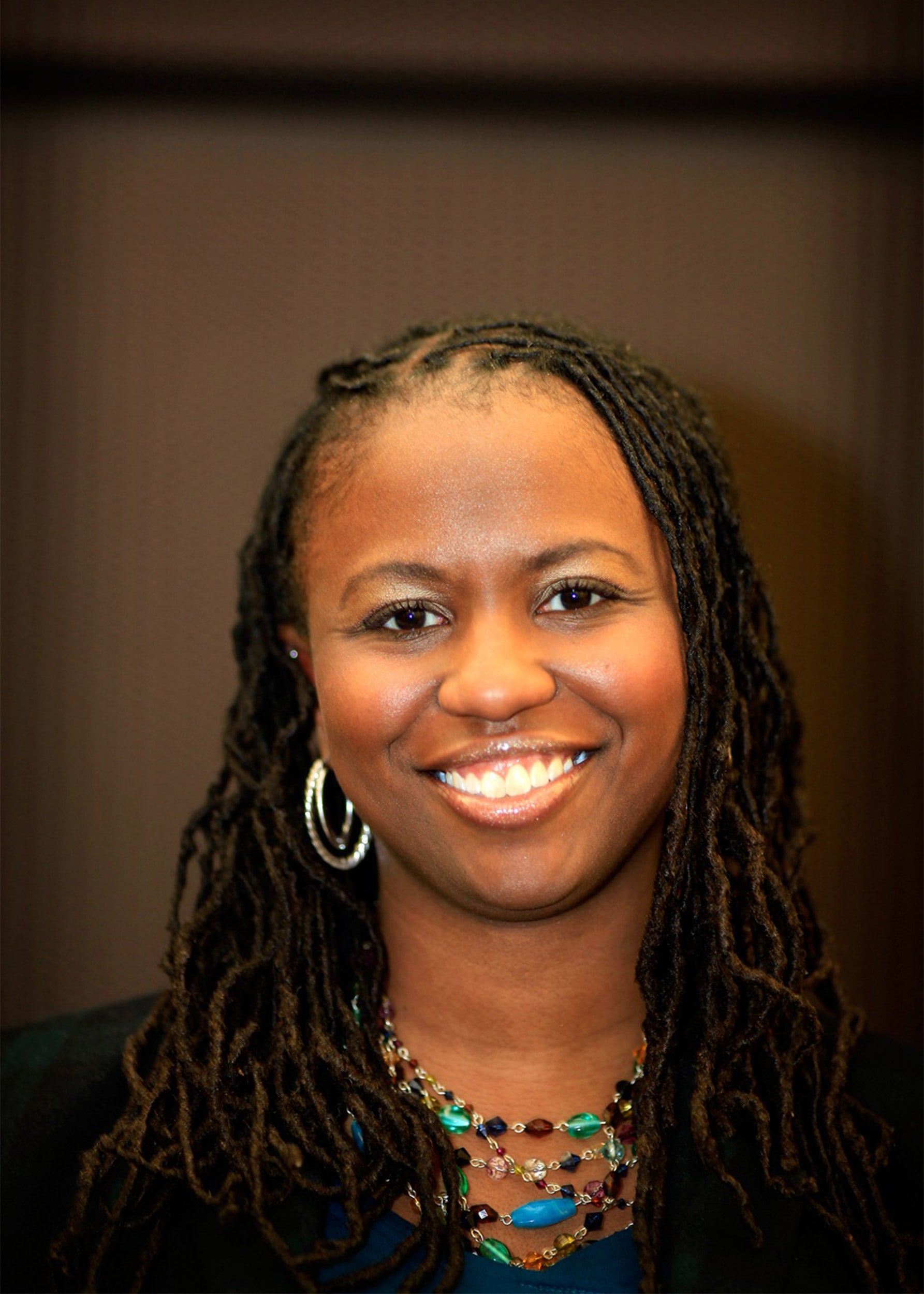
Sherri Ann Charleston has been named Harvard’s chief diversity and inclusion officer.
Photo by Sam Crowfoot
Sherri Ann Charleston, one of the nation’s leading experts in diversity and higher education, has been named Harvard’s chief diversity and inclusion officer (CDIO), President Larry Bacow announced today. Her appointment is effective Aug. 1.
A historian trained in U.S. history with a focus on race, women, gender, citizenship, and the law, and an attorney with a specialization in constitutional and employment law, Charleston most recently served as the assistant vice provost for diversity, equity, and inclusion and chief affirmative action officer at the University of Wisconsin (UW)-Madison.
“Sherri is an administrative leader and interdisciplinary scholar whose work at the intersection of history and law informs her efforts to translate theory into practice that improves higher education,” Bacow wrote in an email sent this morning to the University community welcoming Charleston to her new position. “She is widely admired for her ability to integrate all aspects of an institution into her strategic thinking and decision-making. I welcome Sherri’s leadership and expertise in this important area.”
In her leadership roles at UW-Madison, Charleston has been responsible for assessing and evaluating progress toward the goals of a campus-wide strategic diversity plan. She also oversaw its Office of Affirmative Action Programming and Planning, Office of Employee Disability Resources, and several undergraduate scholarship programs aimed at recruiting and retaining students who are historically underrepresented there.
“I am thrilled to see the groundswell of work that already exists at Harvard, and I look forward to synthesizing and integrating the University’s many effective diversity and inclusion efforts into a visible, innovative strategy for enhancing diversity, equity, access, inclusion, and belonging across campus,” said Charleston.
“My approach to the work is very much grounded in my academic interests in history and the law, and in thinking about how we’ve evolved, and how we haven’t evolved, around questions of race and gender, and it comes from a deep passion toward effecting sustainable organizational change, and creating structures that outlast all of us, so that we can actually make progress. I fundamentally believe that many of the challenges that we face in higher education relative to diversity, equity, inclusion, and belonging have answers rooted in applied research. We must work together in the field to find them.”
“… I look forward to synthesizing and integrating the University’s many effective diversity and inclusion efforts into a visible, innovative strategy for enhancing diversity, equity, access, inclusion, and belonging across campus.”
Sherri Ann Charleston
As Harvard’s new CDIO, Charleston will serve as a senior central administrator prioritizing and championing diversity and inclusion, working in collaboration with administration and faculty leadership across the University. She also will play a pivotal role in leading the ongoing implementation of the recommendations of the President’s Task Force on Inclusion and Belonging. She will report directly to Bacow, and will be a member of the Academic Council.
Charleston has directed various units at UW-Madison over the course of her career. As an academician and administrator with considerable experience translating theory into praxis, she has expertise in affirmative action, Title IX, and Americans with Disability Act enforcement and compliance. Her focus has been translating and facilitating diversity and inclusion research into practice, giving her an in-depth understanding of best practices for diversity, recruitment, and the retention of students, staff, and faculty of color. She is an expert in organizational leadership and data-informed decision-making related to diversity and inclusion. As a reflection of her commitment to this work, in 2019 Diverse Issues in Higher Education magazine named her one of the Top 35 women in Higher Education.
Charleston is the first person to hold the newly formed position of CDIO, following the completion of the work of the Presidential Task Force on Inclusion and Belonging. Lisa M. Coleman, Harvard’s first chief diversity officer, left her post in 2017 to take on a similar role at New York University. In 2018, John Silvanus Wilson was appointed by Drew Faust to serve as senior adviser to the president, launching the University’s implementation of the task force’s recommendations.
“John’s work over the last two years has helped set the foundation for Harvard’s pursuit of sustainable inclusive excellence,” Bacow said. “In the months ahead, he will continue to serve as a senior adviser to me on several key projects, before resuming his research on historically Black colleges and universities, which he came to Harvard to conduct in late 2017. It is his passion to help map out a brighter future for one of America’s most challenged higher education sectors.”
As an interdisciplinary scholar who employs both legal and historical methodologies, Charleston’s scholarship has focused on exploring the relationship between the law and issues related to race, gender, and equity. She concurrently holds faculty affiliations with the Departments of Gender and Women’s Studies and Educational Leadership and Policy Analysis at UW-Madison.
Charleston earned her B.A. from Columbia University in history and African American studies; M.A. and Ph.D. in history from the University of Michigan; and J.D. from the University of Wisconsin Law School. She is a native of Detroit and in her spare time she enjoys reading, dancing, boating, hiking, and traveling with her spouse, LaVar J. Charleston, who is associate dean in the School of Education at UW-Madison.
“I look forward to working closely with Sherri and other members of my senior leadership team to drive and support our strategic plans for diversity, inclusion, and belonging across the University,” wrote Bacow. “She will need the advice and support of people throughout the University as she begins the important work of helping us become the kind of community we ought to be. The urgency of this moment must not be wasted.”
